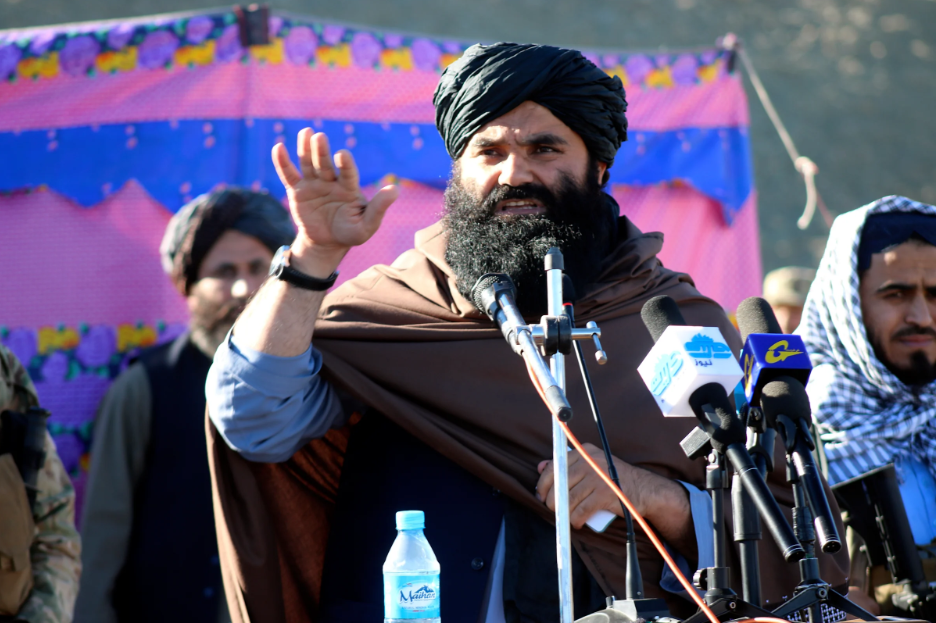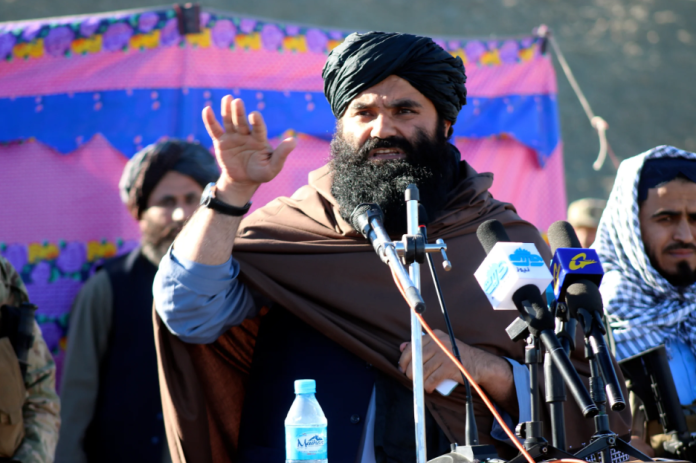In a significant diplomatic move, the United States has lifted bounties on three senior Taliban officials, including Interior Minister Sirajuddin Haqqani, who leads the powerful Haqqani Network. The decision, confirmed by officials in Kabul on Sunday, signals a possible shift in relations between the U.S. and the Taliban-led Afghan government.
Who Are the Officials Affected?
Sirajuddin Haqqani, a key figure in the Taliban government, was previously wanted for his role in planning deadly attacks, including the 2008 bombing of Kabul’s Serena Hotel, which killed six people, including an American citizen. However, his name has been removed from the U.S. State Department’s Rewards for Justice program. Meanwhile, his FBI wanted poster remains online.
Along with Haqqani, two of his relatives, Abdul Aziz Haqqani and Yahya Haqqani, have also had their U.S. bounties revoked. The Taliban’s Interior Ministry spokesman, Abdul Mateen Qani, confirmed the removal, stating that the three are “two brothers and one paternal cousin.”
A Milestone in U.S.-Taliban Relations?
The Haqqani Network, once one of the deadliest arms of the Taliban, was notorious for using roadside bombs, suicide attacks, and kidnappings. The group has been linked to attacks on high-profile targets, including the U.S. and Indian embassies. However, recent developments suggest that the Taliban is working toward diplomatic normalization.
Zakir Jalaly, a senior official in Afghanistan’s Foreign Ministry, said the removal of the bounties was part of a broader effort to improve ties between Washington and Kabul. He noted that the recent release of U.S. prisoner George Glezmann by the Taliban was also a step in this direction.
Taliban Sees Growing Diplomatic Openings
The Taliban has been seeking international recognition since taking control of Afghanistan in August 2021. While major world powers have not officially recognized their rule, some nations, including China, have accepted Taliban diplomats. Countries like Qatar have served as mediators, while U.S. officials have held several rounds of discussions with Taliban leaders.
Shafi Azam, another Afghan official, described the U.S. decision as a “step toward normalization” and pointed to Afghanistan’s recent control over its embassy in Norway as further evidence of growing diplomatic engagement.
International Pressure vs. Diplomatic Gains

Despite these developments, the Taliban remains internationally isolated due to its restrictive policies, particularly bans on education and employment for women. Haqqani himself has previously criticized the Taliban leadership’s authoritarian stance, arguing that such policies alienate the Afghan people.
The United Nations still has sanctions in place against Haqqani due to his past activities, though he has been allowed to travel for diplomatic purposes. In the past year, he has visited the United Arab Emirates to meet its leaders and traveled to Saudi Arabia for pilgrimage—marking his first international trips since the Taliban’s return to power.
What This Means for the Taliban
According to Ibraheem Bahiss, a senior analyst at the International Crisis Group, the U.S. decision to lift the bounties is a major win for Taliban officials who want to engage with the international community. He noted that “sanctions are more damaging to the Taliban than a lack of recognition. Lifting them allows for more economic and diplomatic activity.”
While full diplomatic recognition remains unlikely in the near future, the Taliban views the easing of restrictions as progress. The U.S. decision could open the door to further negotiations, though major concerns about human rights and security remain unresolved.



